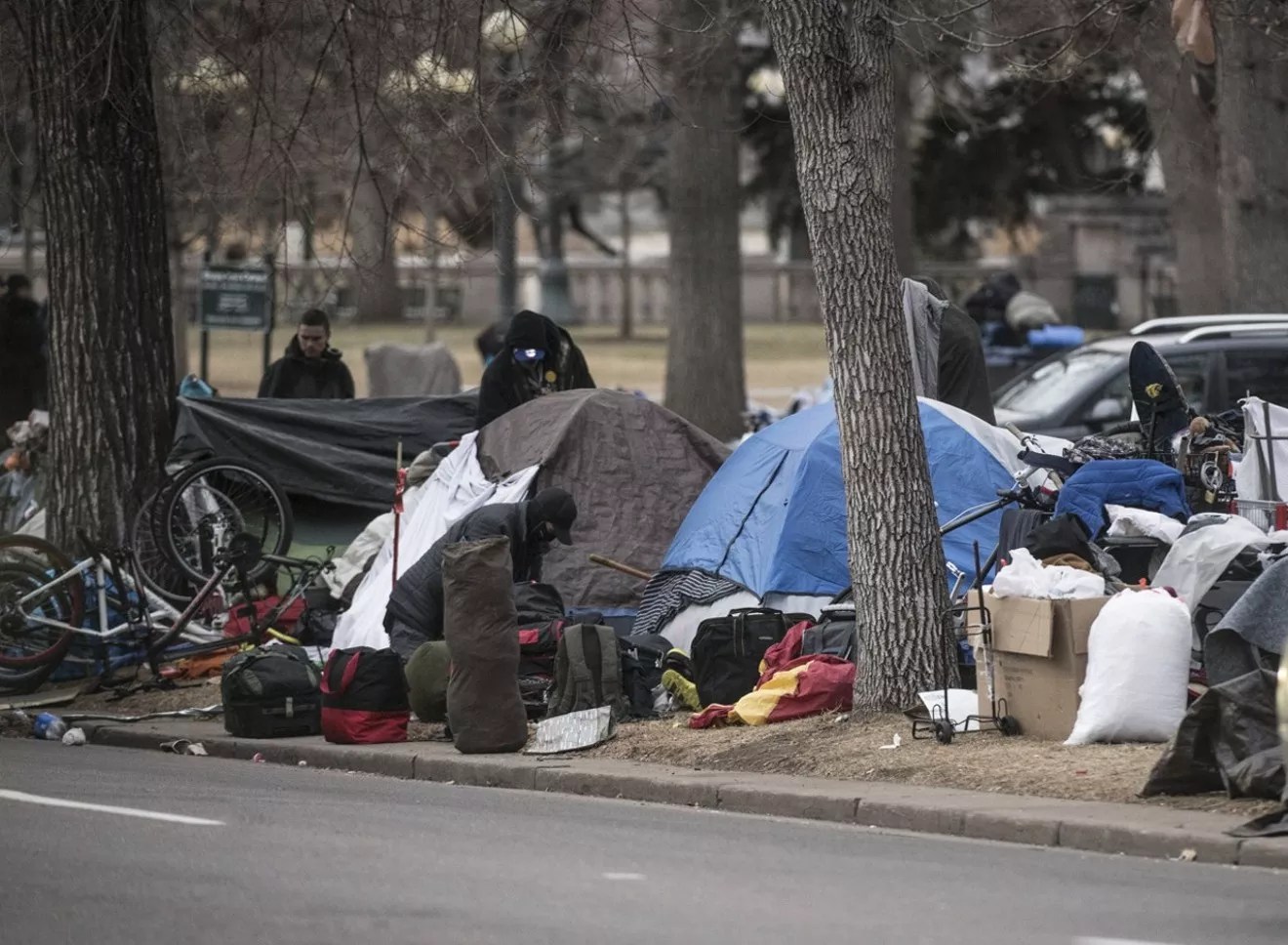
Evan Semón

Audio By Carbonatix
Terese Howard has spent over a decade working with people experiencing homelessness in Denver, and she’s observed a worrying trend throughout that time.
“We hear all sorts of new solutions, new plans on what it is we’re going to do to address homelessness and housing, and none of them are based on talking to houseless folks,” says Howard, an organizer with Housekeys Action Network Denver (HAND). “We decided we should start with this survey.”
Throughout 2022, HAND surveyed people experiencing homelessness in Denver, including some living in tents, some staying in shelters and others with just a sleeping bag protecting them from the elements. The surveyors themselves were people experiencing homelessness or who had had been homeless in the past. Ultimately, 812 individuals answered the survey, which included 24 questions “surrounding people’s experiences, priorities, and desires around housing,” notes the report on the survey, titled Pipe Dreams and Picket Fences.
Released March 8, the study includes some illuminating results. For example, 93 percent of people who were offered housing or a housing voucher said that they didn’t refuse it.
“It tells us that people want housing and that people want housing that meets their needs,” says Howard. As for the 7 percent of survey respondents who said that they’d refused an offer of housing or a housing voucher, Howard says: “Sometimes, reasons given for why the few people that did refuse housing vouchers were things like the location was not accessible or it didn’t allow pets. Things like that. Those are factors that need to be part of the housing that we create.”

A new survey asked people experiencing homelessness what they want in housing.
Evan Semón
Asked what they wanted in housing, about 60 percent mentioned “personal qualities” for housing, such as desires for autonomy and safety. “That is something that any normal person wants in housing, but it’s not something that we give to houseless people – and it’s not in many of the ways that our powers-that-be try to make new ‘solutions,'” Howard says.
Many of those surveyed mentioned bathrooms as something they wanted in housing, along with “climate control,” referring to the heating or cooling of a unit.
The title of the study – Pipe Dreams and Picket Fences – was taken from two answers offered by survey respondents. “A small one or two-bedroom apartment. A small house to own would be, or is, my goal, but it seems like a pipe dream these days,” said one.
“Not sure if white picket fences are still on the table?” answered another. “That being said, I would love a spot to raise a tiny dog and maybe a kid.” The study describes this response as showing someone “harkening back to a time when housing policy made the emblematic ‘white picket fence’ American Dream more tangible. They then settle for a place that allows them the human, personal qualities of raising a family in a loving home.”
The survey also asked about the length of housing waitlists. The average time that respondents had been on a list was 2.4 years, according to the study, while the most common time given for how long someone was stuck on a waitlist was one year.
“You’re talking about, ‘Oh, shelters are temporary solutions. Oh, this is an emergency shelter.’ Well, that emergency is going on for two and a half years. A lot happens in two and a half years,” Howard says.
Of survey respondents who had gone through the “housing process,” just 21.8 percent said that it worked. “These findings reveal widespread distrust in the housing process leading to housing effectively,” the study notes, “and even those who do believe the current processes work acknowledge that success is dependent on special conditions.”
Special conditions, and certain income levels: 88.4 percent of those surveyed said that they could only afford rent of under $1,000 a month. And 16.7 percent said they needed housing to be completely free in order for it to be affordable.
“The prices that houseless people can afford obviously do not match with the prices that we are seeing created,” Howard notes. “If we’re going to come up with any sort of a solution, that solution must involve actual housing that people can afford.”
The report includes data on national housing trends that was compiled by master’s-level students in a University of Denver Poverty and Economics course. “The national and local government trends have turned to the private market as the main source of low-income housing using subsidies or tax breaks. This does not create the housing people need,” the study suggests.
Since homelessness has been such a big topic of discussion during Denver’s mayoral race, Howard says she’s hopeful that candidates will read the study and “maybe re-evaluate some of their plans based on what we’re hearing.”
The full survey is available here.